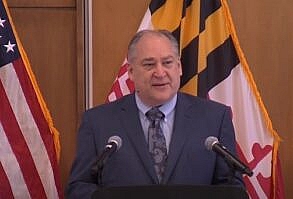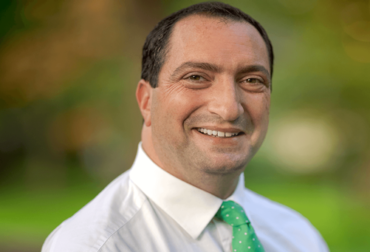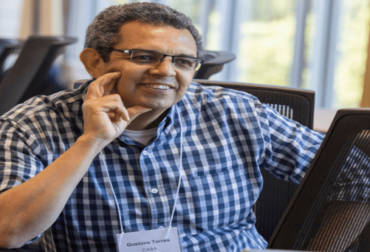Mrs. Elizabeth Chung is a native of Hong Kong, China and immigrated to the United States in 1970. She has been a strong advocate for minority health for the past 50 years. She is the founder and Executive Director of the Asian American Center of Frederick (AACF) in 2005. Mrs. Chung’s most recent accomplishment is the development of the Community Health Worker Program in western Maryland. She is expanding public/community health workforce development to address health disparities for the most vulnerable populations in the community. Since 2020, Mrs. Chung has been serving on the Asian Pacific Island American Commission. She also served on the Maryland Community Health Resource Commission from 2013 to 2021 and as a chair in 2019. Mrs. Chung graduated in public health from the Pennsylvania State University in 1981.
Nagender Madavaram: You are helping immigrants for the last four decades in this region. Very few organizations are providing help to Asians and your organization is one of them.
Elizabeth Chung: Well, I think that the most important thing is understanding the needs of immigrants. Everyone comes to the United States with wonderful dreams. Whatever they might be, a lot of good opportunities are available to them in the US. We are trying to help the newcomers understand and take advantage of those opportunities.
Nagender Madavaram: What made you to enter into nonprofit healthcare industry? Because many people enter into healthcare industry to make money but you are working in nonprofit sector. What inspired you to enter into nonprofit sector?
Elizabeth Chung: Let’s go with my family background. My father and my grandfather were Chinese medicine doctors, they provided free healthcare to the people in the community where we lived in Hong Kong. When my father came to this country in the mid 80’s as a legal immigrant, he could not get health insurance at that time because of pre-existing conditions. I had to pay for his medical expenses and it was impossible to take care of him, as my family was relocating then. So, I had to send him back to Hong Kong with one way ticket. Shortly later, he died at home. That was very sad and shocking as here in the richest Country in the world, we could not provide adequate healthcare to elderly populations.
I also have witnessed ultimate health disparities, seeing our Limited English Proficiency (LEP) communities suffer unnecessary and premature death. This is truly unfair and unjust. This is an issue of equity and equality. From these experiences, I recognize that in order to have (health) equity, more is at stake than just securing access to doctors or living in the absence of disease. We have to address many factors. Health equities have a lot to do with economic equities. Peoplehave to have jobs and they need a path to become citizens. As immigrants, we need to have basic English skills. I founded AACF with three modes of action: Enhance access to services, Empower the community, and Enrich cultural diversity. So, I really look at health as a more holistic approach. So, it’s the basic need. We need access to healthcare, education, housing, language and transportation and other social determinants. As an agency, we try to integrate our services in order to address these needs. We help the service providers, the systems, and the policy makers to understand that they cannot address health equity without looking at all other social and economic factors.
Nagender Madavaram: Well, I’m hearing about equity for the last two years during this COVID, but you realized the importance of equity more than a decade ago.
Elizabeth Chung: That’s how we started. It’s been 15 years. We have been discussing equity in healthcare to make it affordable, appropriate, and accessible. Language, and cultural differences are limiting factors, and the key challenge about this country is that it has been lacking intercultural competency hampering the ability to address these differences. Systems have been working in silos and have become accustomed to institutional complacency. As an agency, we seek to educate policymakers and advocate for the community. That’s why being community leaders or community members requires involvement. We strive to help the system to understand our needs. But, we have to create services in collaboration with the systems. We have to learn what is not working. We try to provide solutions but not complaints. It’s not going to help us if we complain about injustice and inequity. I’m proud to be an Asian American and I’m proud of my roots. The Asian population is very broad and diverse but we serve everyone. I’m proud of our service to the various communities. We serve people of 35 languages who immigrated from more than 20 countries. We promote our Asian heritage and promote language assets. People question why our name is the Asian Center while serving over 50% Latino population. If the Asian Center can serve everyone, why can’t the Red Cross? Why can’t the United Way? So, we make a statement about inclusiveness in our equity work.
Nagender Madavaram: Asians are attracting attention of hatemongers during the Covid. Chinese, Koreans, Vietnamese and other immigrants also became easy targets for attacks.
Elizabeth Chung: I certainly think there is racial profiling, particularly during Covid. A lot of our minority people are being targeted.
Some students behaved violently against Asian students in schools, but our school system hasn’t really done much to improve that situation. An incident came to my attention but, unfortunately, the incident did not rise to the level of a crime, so we could not even address it through the FBI. That concerns me because this is not acceptable. So, we learn about the system. We have to continue to advocate and educate.
Nagender Madavaram: September 11 incidents brought hatred against many communities in the US. Innocent people lost lives in the attacks. Covid pandemic created an insecure environment for Asians.
Elizabeth Chung: People don’t realize the importance of this challenge. First and foremost, We have to come closer together to understand a and help each other for the purpose of building a Beloved Community, as Doctor Martin Luther King advocated. If he were alive, he would have been 93 in April 2022. He was the inspiration which brought me to America 50 years ago. King advanced civil rights for people of color in the United States through nonviolence and civil disobedience, inspired by his Christian beliefs and the nonviolent activism of Mahatma Gandhi. There is a way to solve problems. We should not give up but keep on going. It is important to teach our new immigrants and the old settlers about accepting differences. Community education is so important to everyone. I felt that it is the role of an agency like ours to help build understanding. We have to focus a lot of energy and time for the next generation to implement better education and job training. There are also other ways to learn beside a school setting. The community is a good learning environment for helping others. As a community leader, we work with the homeless and disabled to know the needs of our neighbors. We sponsor AmeriCorps to develop volunteerism in the immigrant community. We are active in interfaith activities. After all, it’s really a caring ministry and it doesn’t matter what faith we each follow. Currently, we have families from Afghanistan who have just settled down in Frederick. It’s hard for them to adjust. Fortunately, our center joined other volunteer groups helping to get housing, jobs, transportation and English tutors to help our newcomers to settle down in a new country.
Nagender Madavaram: You are getting a good number of grants from Federal and State Governments.
Elizabeth Chung: Well, in terms of government funding like any other funding, you need to understand the funders’ expectations. But we also have a track record of knowing what the needs are and how best to use our funds with the right purpose and with sustainability in mind. Sometimes you an applicant needs to educate the funding agency. I try to justify our request with a good track record, supported by impact made thus far with data. That’s also difficult because Asians are not just one group. We collect information that reflects diversity. Then we use the data to articulate these facts.
I give you a recent example of working on a proposal to CDC which studied our process of community and clinical linkages, asking about how we impact health outcomes. For a community-based agency with limited resources, it is not that easy to articulate because we use a lot of personable approaches. My strategy at AACF is to develop a workforce presence in the communities to make better connections between patients and the providers. My agency has become a training center for Community Health Workers who offer a cost-effective way to deliver health care services. We were successful in demonstrating this impact in our work with pediatric asthma education, prenatal care, hepatitis B/ C care and diabetes management using the Community Health Workers. Finally, we focus on data literacy, health literacy and immigrant health by working with University of Maryland School of Public Health and many other stakeholders striving to achieve equity, diversity and inclusiveness. We will continue to develop our own skill set and that is why nowadays young people have more opportunities to pursue different kinds of professions while improving equity for the rest of us.
Nagender Madavaram: The main concern about immigrant community is, individuals give most of the time to their families and religious places. They don’t participate in community activities and don’t share resources or expertise with others.
Elizabeth Chung: I hope that they will share. They will share their expertise and share the resources. We need to further develop more mentoring for our younger generation hoping they will become mentors themselves. Each one mentor will teach one. In an agency, funds are needed because you do need to hire staff but also to provide the ongoing technical assistance and mentorship the younger workers need. We have to build an agency that will last to help newcomers to be successful in their pursuit of happiness and quality of life. That’s what equity is about.
Nagender Madavaram: Do you have to say anything to the new immigrants who are moving to this area.
Elizabeth Chung: I think, more involvement in civic engagement and volunteerism is important. After all, this country gives us the opportunity to build a new life. I feel that all immigrants must appreciate the opportunity this country gives us. We should give back. Help the community. Do the best where you are needed the most. So, find your niche and build your skill set to make a difference.











